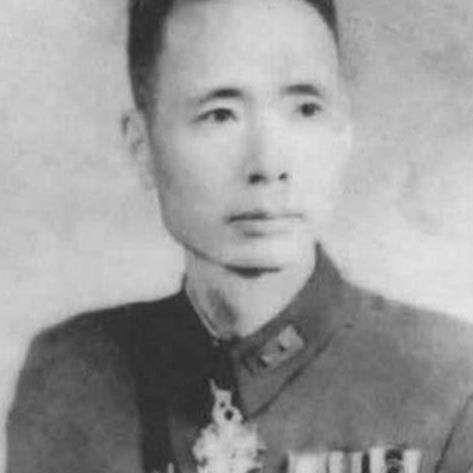During the Republic of China period, there was a saying of "three and a half military experts", the first three were Jiang Baili, Yang Jie and Bai Chongxi, and the remaining half of the military experts were named Liu Fei.

Liu Fei's family was poor when he was a child, so he studied hard, his grades were very good, and he had a certain reputation in the local area. A Chinese medicine practitioner named Zou Yijing thought that Liu Fei could become a great instrument, so he gave his daughter Xu to him. What is even more coincidental is that Zou Yijing once saved Bai Chongxi's life, so Bai Chongxi took Liu Fei for his own use and focused on cultivating him in order to repay his favor.
With the help of Bai Chongxi, Liu Fei successively studied at the Guangxi Nanning DaowuTang and the Guangdong Xijiang Daowutang, and after graduation, he stayed with Bai Chongxi as a staff officer. Because his military talent was very prominent, he gradually became the chief think tank of Bai Chongxi, and made great contributions to Li Zongren and Bai Chongxi's fight against the country.
What is even more rare is that Liu Fei has a good relationship with many generals of our army, which is relatively rare among the generals of the Gui clan. Moreover, after Chiang Kai-shek launched a counter-revolutionary coup, Liu Fei directly chose to resign because of anger, and then went to Japan for further study, and successively studied at the Japanese Army Infantry College and the Japanese Army University.
In the past few years in Japan, Liu Fei just avoided the warlord melee and the war between the Kuomintang and the Red Army, so he later became one of the few Gui generals who did not bear the blood debt of the Red Army.
After the outbreak of the All-out War of Resistance Against Japanese Aggression, Liu Fei was appointed as the leader of the combat team of the base camp for operations against Japan, and he directly led the planning of a series of major battles such as the Battle of Songhu, the Battle of Xuzhou, and the Battle of Wuhan. Chiang Kai-shek saw that he was talented and promoted him to the position of deputy commander of the military command, so he successively planned large-scale battles such as the Battle of Changde and the Battle of Changsha. At that time, his superior was Xu Yongchang, but Xu Yongchang's specialty was not in the military, so the first merit of these battles should be recorded on Liu Fei's head.
After the victory of the Anti-Japanese War, Liu Fei was promoted to deputy chief of staff, second only to Chen Cheng. Liu Fei did not have the heart to serve the party-state, and after seeing the defeat of the Kuomintang, he had already predicted the defeat of the Kuomintang, so he submitted eight resignations in succession, and finally broke away from Chiang Kai-shek.
In the later period of the Liberation War, Liu Fei made great contributions to the kuomintang bigwigs such as Cheng Qian and Chen Mingren. He had also advised Bai Chongxi, but Bai Chongxi did not listen to him. Finally, Liu Fei said to Bai Chongxi that he must not go to Taiwan in the future, because Chiang Kai-shek is a person who must repay with his eyes wide open, but Bai Chongxi still did not listen, and Bai Chongxi, who came to Taiwan, was indeed ostracized by Chiang Kai-shek and came to settle his life in depression.
Liu Fei, on the other hand, decisively chose to revolt and later participated in the First CPPCC Session of New China. After the founding of the People's Republic of China, Liu Fei became the vice chairman of the National Committee of the Chinese People's Political Consultative Conference, and was already a deputy state-level cadre, with a very high status.